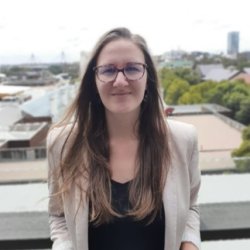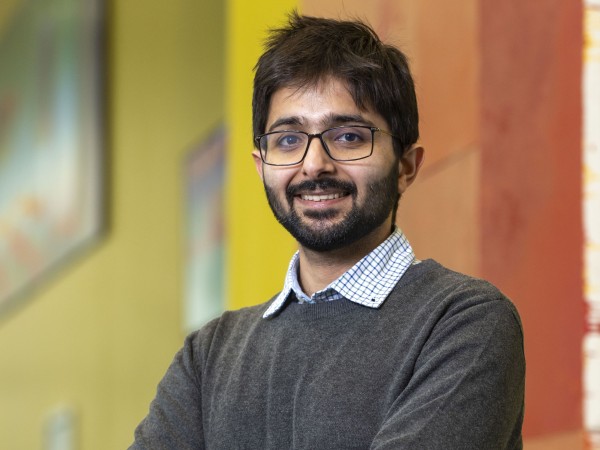
Marie Enfrin
Marie Enfrin studied for a PhD in Chemical and Process Engineering jointly with the University of Surrey and Deakin University in Australia, researching how microplastics lead to pollution. She’s now workingas a postdoctoral research fellow at Royal Melbourne Institute of Technology (RMIT) University, Australia.
Graduation year
2021Why did you choose to do your PhD at Surrey?
I heard about the PhD research project on microplastics pollution – which was a joint PhD between the University of Surrey and Deakin University – and was very interested in the international partnership and the opportunities that it would bring. I was also convinced by the excellence of the research being conducted in both Surrey's Department of Chemical and Process Engineering and the Institute for Frontier Materials (IFM) at Deakin.
What was your PhD all about?
Plastic pollution has become a serious concern over the past few years, specifically due to the high number of plastic particles found in the environment. These can be so small that they become invisible and are carried through drinking water systems, while being potentially hazardous. My PhD focused on investigating microplastic pollution in water, specifically the interactions between these particles and the filtration membranes typically used to produce drinking water, where microplastics are detected.
What were the highlights of your PhD?
The main highlight was initiating a new research area by demonstrating for the first time the need for water facilities to further investigate the impact of microplastics of varying shape, size and composition on current treating units. I also published four well-received peer-reviewed papers during my thesis and presented the key results at several industry workshops, academic conferences and media interviews in the UK and Australia.
Another highlight was being elected as ‘Postgraduate Researcher of the Year’ within the Department of Chemical and Process Engineering, from among nearly 100 postgraduate students.
How did you find the experience of studying across two institutions on either sides of the world?
During my PhD I spent half my time at Surrey and half at Deakin University. I had a supervisor at each (Dr Judy Lee at Surrey and A/Prof Ludovic Dumée at Deakin), who were both very supportive, helping me to develop my critical thinking skills and become the researcher I am today.
"Working across two institutions, laboratories, teams and countries over three years significantly improved my adaptability, resilience and project management skills. I think that this kind of partnership is a great opportunity for PhD students who want to be part of an international project."
Which facilities did you get to use?
At Surrey I spent a lot of time in the chemical engineering lab and the MicroStructural Studies Unit, while at Deakin I made use of the material synthesis and characterisation facilities within the IFM.
What are you doing now and where?
I’m currently a postdoctoral research fellow at the Royal Melbourne Institute of Technology (RMIT) University, Australia, where I’m working on a national project within the Civil and Infrastructure Engineering Department. I am in charge of investigating the release of microplastics from asphalt modified with recycled plastic waste.
My daily work varies between lab work, student supervision, meeting with industry partners and writing reports. The pace is quite sustained but my project is very exciting and my passion for research and science means that I thrive in this environment.
What are your ambitions for the future?
I am planning on pursuing my career in academia. I want to contribute to addressing microplastic pollution by becoming an expert in this field.
Why not discover our courses in chemical and process engineering, including our Chemical and Process Engineering Research PhD.

